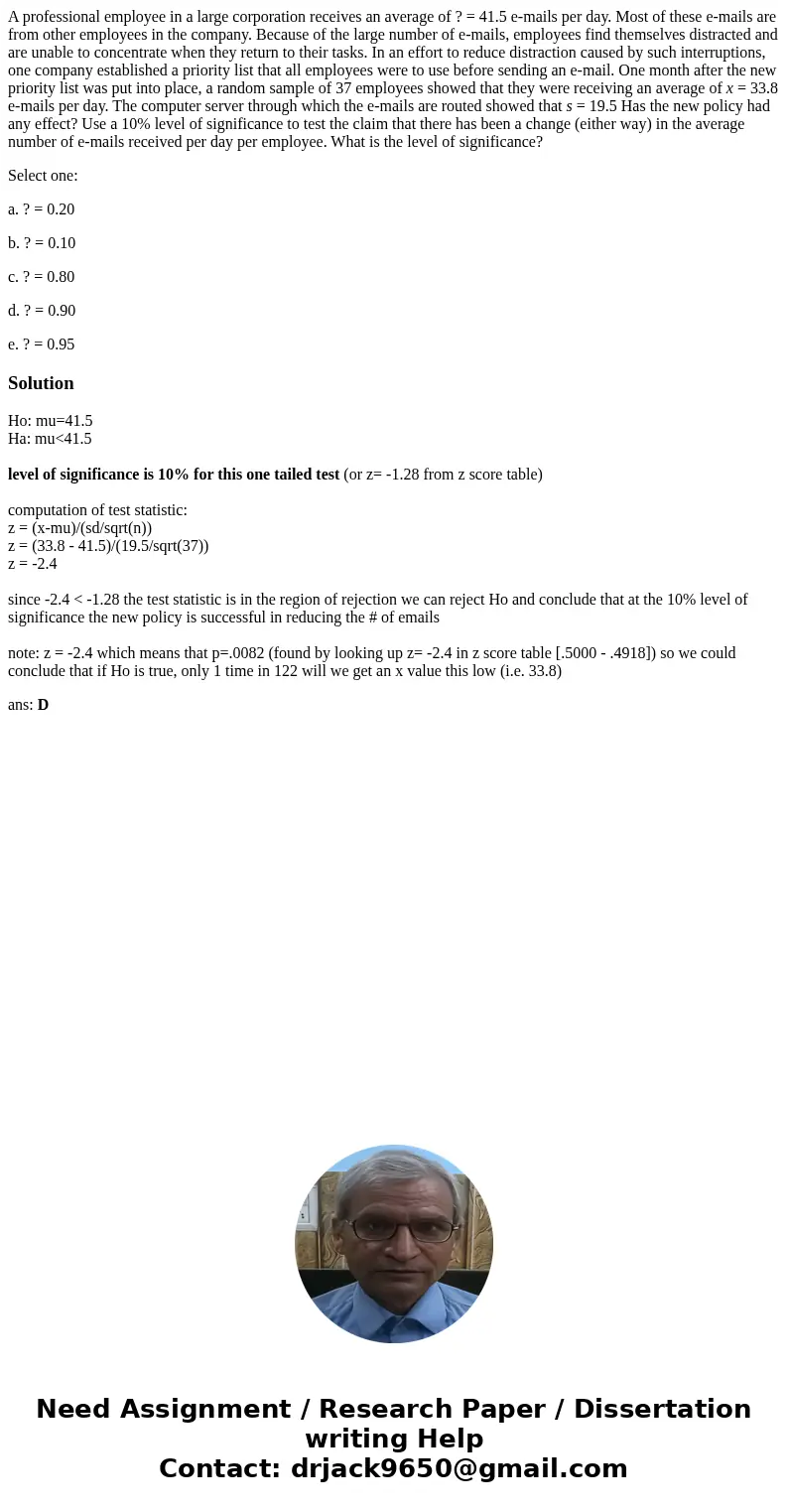A professional employee in a large corporation receives an a
A professional employee in a large corporation receives an average of ? = 41.5 e-mails per day. Most of these e-mails are from other employees in the company. Because of the large number of e-mails, employees find themselves distracted and are unable to concentrate when they return to their tasks. In an effort to reduce distraction caused by such interruptions, one company established a priority list that all employees were to use before sending an e-mail. One month after the new priority list was put into place, a random sample of 37 employees showed that they were receiving an average of x = 33.8 e-mails per day. The computer server through which the e-mails are routed showed that s = 19.5 Has the new policy had any effect? Use a 10% level of significance to test the claim that there has been a change (either way) in the average number of e-mails received per day per employee. What is the level of significance?
Select one:
a. ? = 0.20
b. ? = 0.10
c. ? = 0.80
d. ? = 0.90
e. ? = 0.95
Solution
Ho: mu=41.5
Ha: mu<41.5
level of significance is 10% for this one tailed test (or z= -1.28 from z score table)
computation of test statistic:
z = (x-mu)/(sd/sqrt(n))
z = (33.8 - 41.5)/(19.5/sqrt(37))
z = -2.4
since -2.4 < -1.28 the test statistic is in the region of rejection we can reject Ho and conclude that at the 10% level of significance the new policy is successful in reducing the # of emails
note: z = -2.4 which means that p=.0082 (found by looking up z= -2.4 in z score table [.5000 - .4918]) so we could conclude that if Ho is true, only 1 time in 122 will we get an x value this low (i.e. 33.8)
ans: D

 Homework Sourse
Homework Sourse